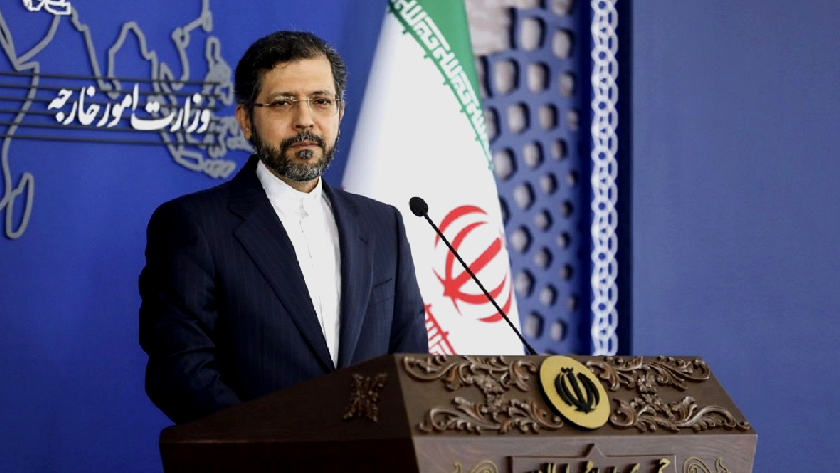Iranian Foreign Ministry Spokesman welcomed the agreement reached between parties involved in Yemen war at the proposal of the UN Secretary-General’s Special Envoy to extend the ceasefire in Yemen for another two months.
Saeed Khatibzadeh said that Islamic Republic of Iran hopes to witness the complete removal of blockade on Yemen, establishment of a lasting ceasefire in the country and achieving a political solution in the light of efforts made in this regard.
Islamic Republic of Iran, based on its strategic vision and principled policies, has always considered ‘political’ solution as the only solution to Yemeni crisis and has used all its capacities to promote a just peace based on the realities of Yemen.
According to a report, Iran on Saturday welcomed a two-month truce brokered by the United Nations between Yemen’s warring sides, hoping for a permanent end to the protracted conflict.
In a statement, Foreign Ministry spokesman Saeed Khatibzadeh hailed the announcement of the ceasefire, starting with the Muslim fasting month of Ramadan.
He said the truce “could be a prelude” to the “complete lifting of the siege” and “the establishment of a permanent ceasefire” to find a “political solution” to the crisis in Yemen.
The nationwide truce was announced on Friday by the UN special envoy for Yemen, Hans Grundberg, after meeting with representatives of the two sides in Amman.
Coming into effect on Saturday at 7 p.m. local time (1600 GMT), the ceasefire requires both warring sides to halt their military operations, including cross-border attacks.
Under the UN-brokered truce, Yemen’s warring rivals also agreed to allow fuel ships to enter al-Hudaydah port and commercial flights to operate from the capital Sanaa.
Grundberg hoped the truce, which came after weeks of escalation in fighting between the Saudi-led coalition forces and Yemen’s Houthi rebels, would be extended after two months.
The UN envoy said he plans to work closely with the two sides during the two-month truce period to pave the way for a permanent ceasefire, as well as addressing urgent economic and humanitarian needs, and resuming the country’s political process.
Khatibzadeh stressed Tehran’s support for the ceasefire as well as political and humanitarian solutions to the eight-year war.
READ ALSO: Iran warns against attempts to undermine IAEA credibility – FM
He said Iran hopes to see “improved humanitarian conditions as well as the full exchange of prisoners” between the two sides by giving priority to humanitarian issues and the continuation of the ceasefire.
The elusive truce came after Houthis claimed responsibility for a series of missile attacks in Saudi Arabia and the United Arab Emirates (UAE) in recent weeks, which also led to heightened tensions between Tehran and Riyadh.
Significantly, the two-month truce has opened the door for the resumption of tension-easing talks between Saudi Arabia and Iran.
The marathon talks between the two estranged neighbors, underway since April last year, were temporarily suspended by Iran last month, without giving any reason.
The two countries fell out in January 2016 following attacks on two Saudi diplomatic missions in Tehran and Mashhad, which were triggered by the execution of a prominent Saudi Shia cleric, Sheikh Baqir al-Nimr.
The major sticking point in the ongoing talks between Tehran and Riyadh brokered by Baghdad has been the war in Yemen, where Iran backs the Houthis.













